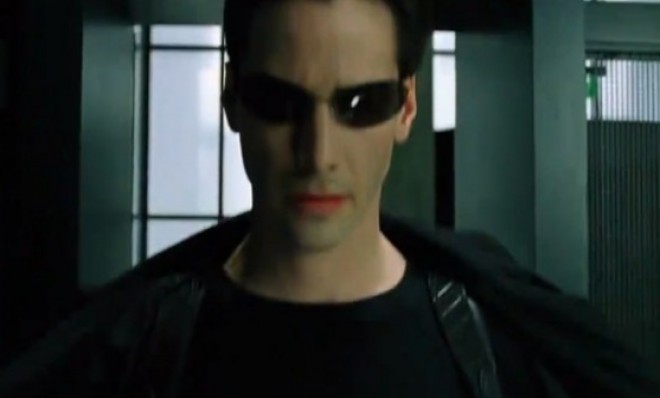Are we secretly living inside a computer program?
University of Washington researchers are conducting experiments to determine if we're really just stuck inside the equivalent of The Matrix

"Whoa." It's the familiar refrain of Neo (Keanu Reeves) in 1999's The Matrix, the celebrated cyberpunk thriller that imagines reality as a grandiose computer simulation. It's also how a few sci-fi fans are reacting to mind-bending new research that suggests the film's conceit might not be so far-fetched after all. Right now, University of Washington physicists are conducting experiments to determine whether or not the universe in which we're living is actually just one, gigantic computer simulation. Here's what you should know:
How could the universe be a computer simulation?
In 2003, a British philosopher named Nick Bostrom from the University of Oxford published a highly controversial but widely read paper in which he suggested, says Ray Villard at Discovery News, that "our far-evolved distant descendants might construct such a program to simulate the past and recreate how their remote ancestors lived." Any supercivilization, argues Bostrom, would inevitably create such a program.
The Week
Escape your echo chamber. Get the facts behind the news, plus analysis from multiple perspectives.

Sign up for The Week's Free Newsletters
From our morning news briefing to a weekly Good News Newsletter, get the best of The Week delivered directly to your inbox.
From our morning news briefing to a weekly Good News Newsletter, get the best of The Week delivered directly to your inbox.
Is that even possible?
Well, we already have simulation games like The Sims. But if you're going to reconstruct reality as we know it, you'd have to start at the most basic, fundamental level. Right now, the planet's most advanced supercomputers use a technique called lattice quantum chromodynamics (LQC) to model subatomic particles — stuff like quarks and gluons. In their paper "Constraints on the Universe as a Numerical Simulation," UW physicists argue that a super-super-super-super computer in the future could stack these basic subatomic building blocks together like Legos to recreate anything: Plants, animals, the human brain, oceans, planets, entire galaxies... you name it. Essentially, such a powerful computer could model space-time as a simulation from the Big Bang forward.
How would we be able to tell if we're living inside a computer-generated universe?
It's really complicated, but essentially UW researchers suggest that we could be living in an intelligently designed reality they're calling The Lattice. Like all software simulations, The Lattice should contain telltale evidence (or "signatures") that the space-time continuum as we know it was being modeled in some sort of omniscient computer. All you'd need to do was identify these "signatures," says Matt Peckham at TIME, say, "something like a limitation in the energy produced by cosmic rays." At the frayed boundaries of The Lattice, for instance, these cosmic rays would behaved in strange, unexpected ways.
A free daily email with the biggest news stories of the day – and the best features from TheWeek.com
How can we test it?
The paper doesn't specify. Physicist Martin Savage, one of the project's researchers, says that if the simulations run long enough, "and have the same laws as our universe, then something like our universe will emerge within that simulations, and the situation will repeat itself within each simulation." In other words, all we have to do is find a simulation within a simulation for evidence that our reality is, indeed, a simulation. You know what that means, says Villard: God could be a computer programmer rather than "a bearded old man living in the sky." Whoa, indeed.
Sources: Discovery News, TIME, ZeeNews
-
 Will AI kill the smartphone?
Will AI kill the smartphone?In The Spotlight OpenAI and Meta want to unseat the ‘Lennon and McCartney’ of the gadget era
-
 Must-see bookshops around the UK
Must-see bookshops around the UKThe Week Recommends Lose yourself in beautiful surroundings, whiling away the hours looking for a good book
-
 A Nipah virus outbreak in India has brought back Covid-era surveillance
A Nipah virus outbreak in India has brought back Covid-era surveillanceUnder the radar The disease can spread through animals and humans